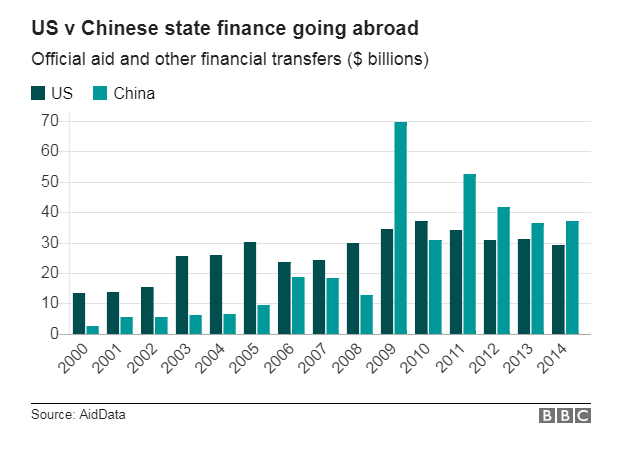X Posted on the Analyzing CPEC Thread
India lines up projects to strengthen links with South, Southeast Asia
NEW DELHI: India is considering a series of projects aimed at strengthening links with South Asia and between the region and Southeast Asia. This comes at a time when the South Asian Association for Regional Cooperation is losing steam amid Pakistan's intransigence over connectivity pacts and China is seeking to increase its influence in the region.
The proposals under consideration include mega cross-border air and land connectivity projects, along with power and energy initiatives.
Some of these projects were part of the agenda when external affairs minister Sushma Swaraj met her Bangladeshi counterpart Mahmud Ali in Dhaka on Sunday, officials told ET.
These included proposals for Dhaka-Chennai-Colombo air connectivity, Chittagong-Kolkata-Colombo shipping connectivity, Bangladesh-North Bengal rail link, Bangladesh-Bhutan internet cables through India, trade route connecting Nakugaon Land Port in Bangladesh to Gayleyphung in Bhutan via India.

Besides, efforts are on implement the BBIN (Bangladesh, Bhutan, India, Nepal) motor vehicles agreement (MVA) soon, while keeping a provision for Bhutan to join later. Bhutan had requested to join the initiative later since its upper house of parliament failed to ratify the pact.
Regional connectivity heads the agenda for the Narendra Modi government because China is expanding its footprint in South Asia and Southeast Asia through its One Belt One Road initiative.
The BBIN MVA will complement the proposed BIMSTEC MVA, which is expected to be the key outcome of the seven-nation summit to be held in Nepal early next year to celebrate 20 years of creation of the Bay of Bengal Initiative for Multi-Sectoral Technical and Economic Cooperation. The BIMSTEC MVA will have all multi-modal features connecting Sri Lanka, which has so far been connected to the six members of the grouping only through air or sea. The two agreements are a critical part of India's Act East policy, which is aimed at enabling strengthening of ties with the Association of Southeast Asian Nations or ASEAN in the periphery of China.
BIMSTEC is also mulling connectivity through cruise liners to promote tourism and coastal shipping between the member states. This will facilitate India's Bay of Bengal outreach, complementing its Indian Ocean Region strategy. Japan is India's key partner in this process.
Connectivity through trans-border rivers among BIMSTEC member states is also on the cards, officials indicated. A significant development has been the beginning of the direct sea movement of containerised cargo between India and Bangladesh, which has reduced shipping time from 30-40 days to not more than 10 days. The two states are linked by cross-border bus and train, besides movement of cargo through rivers. Additionally, old rail links are being revived and new routes added between India and Bangladesh.
The BBIN MVA seeks to allow movement of a pre-determined number of passenger vehicles (personal, regular and non-regular) and cargo vehicles along pre-identified routes running across the territories of the four countries. The trial run of a truck carrying cargo on the Dhaka-Kolkata-Delhi route under the BBIN MVA was carried out successfully in September last year.
A memorandum of understanding for trilateral hydropower cooperation among Bangladesh, India and Bhutan is expected to be signed soon. India had earlier agreed to facilitate import of electricity to Bangladesh from hydro projects in Nepal.
The MoU for Indo-Bhutan-Bangladesh energy partnership is proposed to be signed in presence of the prime ministers of the three countries, according to people aware of the matter. The MoU between NTPC Vidyut Vyapar Nigam Limited and Bangladesh Power Development Board for the supply of 500 mw hydropower from the 900 mw Upper Karnali Hydropower plant in Nepal was signed during the visit of Prime Minister Sheikh Hasina to India in April 2017. At present there are two interconnections through which 660 mw of power is transferred from India to Bangladesh. The state-run Indian firm plans to set up a 1,320 mw coal-fired thermal power plant at Rampal in Bangladesh and several private players are also setting up power stations in the neighbouring country.
India will construct a 135-km-long pipeline from Assam to supply oil to Bangladesh ollowing an agreement signed on Sunday after the Swaraj-Ali joint consultative committee meeting. ONGC Videsh Ltd has acquired two shallow water blocks in Bangladesh, SS-04 and SS-09, in a 50:50 consortium with Oil India Limited, and is carrying out exploration activities in these blocks.
Meanwhile, eyeing better integration among the seven member states, BIMSTEC is considering other regional efforts as well, including the Bay of Bengal Industrial Growth Belt, a joint effort of Japan and Bangladesh. Maritime connectivity is crucial for the BIMSTEC region owing to its geography as well as geo-strategic requirements.
Cheers



